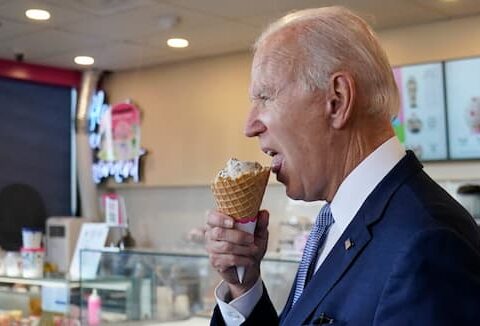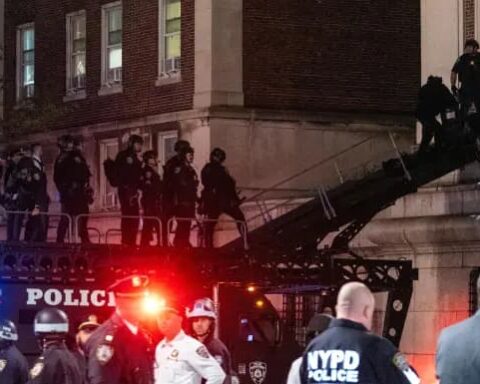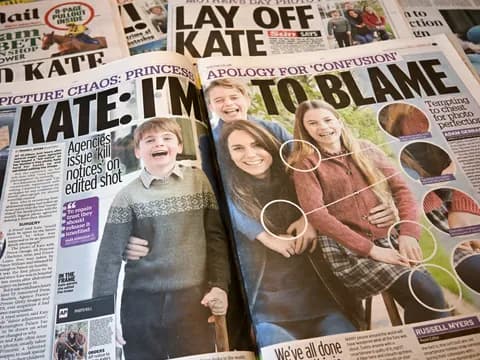So it’s been practically impossible to avoid all of the coverage and fallout from the Leaving Neverland film, which had its UK broadcast late last week.
I already covered a lot of the allegations and tabloid coverage of Michael Jackson allegations here last week, prior to seeing the film: and also laid out various possibilities for where the truth of the matter may lie. I don’t want to go back over all those same things here now.
I’ve chosen to make some observations about the film itself in a separate post: but here I want to present a few things to provide a different perspective/context to this subject, which the most of the media is entirely failing to touch on.
There’s a broader context to the environment in which Leaving Neverland has emerged: and we need to expand our perspective to take in that broader context in order to properly see where Leaving Neverland fits. Central to that context is the ongoing scandal around Harvey Weinstein, the potential scandals in the entertainment industry, and the #MeToo movement.
In the previous article, I asked whether Leaving Neverland – and its aftermath – was possibly a controlled event, designed in part to distract everyone from contemporary or ongoing scandals in Hollywood and the entertainment industry, regarding sexual abuse and even child abuse. Among other things, I highlighted, for example, how Corey Feldman – the most well-known and peristent person alleging child sexual abuse by high-profile figures in the entertainment industry – has consistently defended Michael Jackson, even while talking about similar crimes being committed elsewhere.
Feldman himself seems to have stepped back a little from his longstanding defense of Jackson in the wake of the film; probably due to the overwhelming nature of the film’s content.
But the mass media aftermath of Leaving Neverland has only reinforced this suspicion that there might be something very strategic about this film, its timing and its aftermath: regardless of whether or not Michael Jackson is guilty or innocent.
I still have no comment on whether Jackson is guilty or innocent: I’m exactly where I was the last time I wrote about it, which is to say entirely 50/50.
Which is also to say that Leaving Neverland has had absolutely no effect on my opinion or perspective.
But it clearly did effect a hell of a lot of people quite substantially. I spoke to someone I know, for example, and she’s been a big Michael Jackson fan her whole life: she told me she “100 percent believes” the claims in Leaving Neverland. Which I found surprising, as I’m not really as much of a Michael Jackson fan as she is and yet I wasn’t particularly swayed one way or the other.
But then I can understand her reaction: Leaving Neverland is clearly configured to be overwhelming – an emotional and psychological assault on the viewer. That’s also why it was almost four hours long (when it really didn’t need to be).
But let’s get to shifting the perspective a little here.
Leaving Neverland wasn’t broadcast in isolation, at least not on HBO. It was accompanied by a special programme hosted by Oprah Winfrey, in which she interviewed both Wade Robson and James Safechuck and the documentary-maker Dan Reed.
This was an odd looking event. The audience for the show was populated specifically (we’re told) with child abuse victims. You could argue this was an appropriate thing to do: or you could counter-argue that it was an odd act of emotional manipulation (of the viewing audience).
After four relentless hours of these two young men talking in graphic detail about their abuse at the hands of Jackson, viewers were now watching the men continue to tell their story, while an audience filled with abuse victims – who obviously can relate to the stories – are looking on and nodding with sympathy and solidarity.
But again, it reeks of emotional manipulation of the viewing audience: Leaving Neverland itself could be seen as an emotional manipulation masterclass too; with the two events designed to go together, the end result being to kind of pummel you relentlessly into eventual submission.
It goes firmly for your emotions and your basic sense of decency (being horrified by the described abuse of children), trying to bypass your critical faculties.
But the equation gets more perverse and complicated when you step back and take an even broader panoramic view. And this is where Harvey Weinstein comes into the equation.
Let’s start with an interesting fact. Leaving Neverland premiered at Sundance on the very same day that the Harvey Weinstein documentary film Untouchable also premiered at Sundance.
But there was NO media coverage of the Weinstein film – and an absolute media hysteria over the Michael Jackson film. In the weeks since, this has continued to be the case: everyone is talking about Michael Jackson and not Harvey Weinstein.
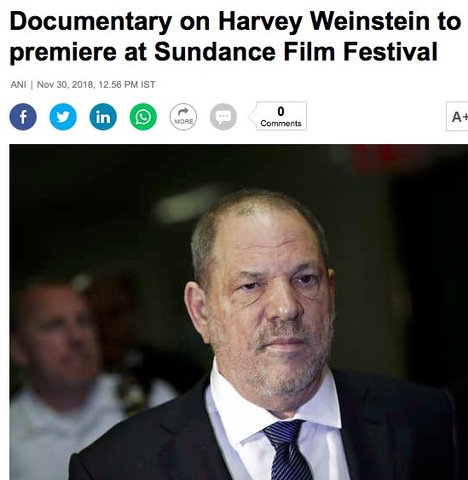
So that’s the first thing to consider.
The Harvey Weinstein trial just got delayed too, you know. And again, no one in the media or in social media is really talking about Weinstein – because everyone’s talking about Michael Jackson.
But look a little closer. Oprah Winfrey is apparently close friends with Harvey Weinstein: Oprah in fact has been accused (fairly or unfairly) of helping cover up Weinstein’s behaviour and has been questionned by some critics for her apparent unwillingness to say anything about Weinstein for years.
The singer Seal accused Oprah Winfrey of knowing about Harvey Weinstein’s predatory behavior towards young women “for decades” and doing nothing about it. “When you have been part of the problem for decades, but suddenly they all think you are the solution,” he said, using the hashtag “#SanctimoniousHollywood.”
In fairness to Winfrey, she never publicly defended Weinstein at any time after the accusations became public: she in fact condemned the behaviour. And a LOT of people said nothing about Weinstein for many years; so it shouldn’t be pinned on Oprah. But it’s still curious that Winfrey is seen as close to Weinstein, and that Winfrey also hosted this After Neverland show… this being after Leaving Neverland had already completely eclipsed the Weinstein documentary at Sundance.
Winfrey’s connection to Weinstein seems to be well attested to. For example, actress Kadian Noble apparently told reporters that Weinstein’s seduction method in her case involved, in part, introducing her to Winfrey.
It’s also worth noting that the Oprah Winfrey Leadership Academy for Girls in South Africa was hit by scandal when there were claims of a number of seventh and eighth-grade girls having been sexually abused there.
There’s no reason to think that Oprah herself is culpable in any way for either that business or the behaviour of Harvey Weinstein (she probably had nothing to do with either): but it does make it odd that she was the one hosting the After Neverland interviews.
These are all significant things to note: because we really should ask why this film about Jackson has been released now specifically, when the alleged abuse took place twenty to thirty years ago and the singer has been dead for almost a decade.
Another relevant question: Is the Michael Jackson controversy being seen as a part of the #MeToo movement – or is it more like a distraction or diversion from it?
Let’s talk about Weinstein for a moment.
Harvey Weinstein is a powerful guy. The media mogul, accused by Rose McGowan, Daryl Hannah, Ashley Judd and numerous other women of sexual assault, deployed former Mossad agents to stalk women who might’ve been a problem for him (and, in McGowan’s case, apparently try to steal her book manuscript).
Weistein’s ‘army of spies‘ were hired to stop potential accusers from going public. Among private agencies working for Weinstein was Black Cube, the organisation staffed by Israeli intelligence officers and ex-Mossad.
It was, in fact, reported that it was ex Israeli Prime Minister Ehud Barack who introduced Weinstein to the Mossad agents.
A recent New York Times piece talks about this dynamic, highlighting the activities of, for example, ‘Psy-Group‘ (a precursor to ‘Black Cube’): ‘Psy-Group was part of a new wave of private intelligence firms that recruited from the ranks of Israel’s secret services—self-described “private Mossads.” The most aggressive of these firms seemed willing to do just about anything for their clients...’
It says elsewhere, ‘Psy-Group stood out from many of its rivals because it didn’t just gather intelligence; it specialized in covertly spreading messages to influence what people believed and how they behaved…’
Interestingly, one of the other dubious agencies reported to have been doing work for Weinstein is ‘Kroll Inc‘. We’re told Kroll consists of ‘police detectives, F.B.I. and Treasury agents, and forensic accountants to conduct detective work on behalf of corporations, law and accounting firms, and other clients. The company… also recruited a small number of former C.I.A. officers…’
So these are the types of people and agencies Weinstein has access to.
It’s also clear that Weinstein has always had various ‘journalists’ and media working to help him, such as the past example of A.J Benza (a gossip columinist). A New York Times article from 2017 (‘The Weinstein Complicity Machine’) highlights how Benza had an arrangement with Weinstein to use various salacious stories or rumours about other people to deflect attention away from any media focus on Weinstein himself.
The article suggests he was sending the stories directly to Weinstein’s communication team, the implication being there were ‘trade offs’ of stories going on: one of the target celebrities specified in the article was… guess who?
Michael Jackson, of course.
The ‘monster’ with a problematic fondness for spending time with children.
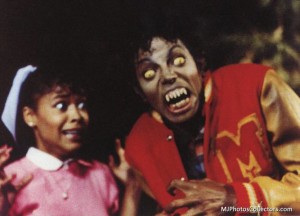
In other words, stories and allegations about Michael Jackson were being put into the media strategically on behalf of Weinstein to give him breathing space.
Keeping that precedent in mind, it’s curious again that Leaving Neverland premiered at Sundance on the same day as the film about Weinstein (Untouchable): and that the Jackson film completely overshadowed the Weinstein film (and has been overshadowing it ever since).
Add to that, again, the fact that Oprah is seen as close to Weinstein and she was brought on board to host the After Neverland show.
In which case, given how the entirety of the mainstream media has run and run with the Leaving Neverland coverage, you have to ask whether the media is entirely complicit in coming to Harvey Weinstein’s aid too: or whether it’s just there are no journalists left in the media and everyone just goes whichever way the wind is blowing.
You tend to wonder then if Michael Jackson is simply an easier target: focus everyone on a dead guy. The Weinstein thing is more dangerous and potentially more damaging to the entertainment industry: because if all of that stuff comes out into the open, it could be compromising all kinds of people who could be accused of abetting that behaviour or helping covering it up: actors, film producers, companies, celebrities, and even intelligence agencies (such as Mossad and Black Cube) and corporate entities (such as Kroll, with its CIA and FBI links). Weinstein was also a Democratic fundraiser with ties to Hillary Clinton. It’s a big rabbit-hole.
There must also be a lot of high-profile figures in the entertainment industry worried that Weinstein’s ‘downfall’ could have a domino effect in terms of other individuals being ‘outed’.
Michael Jackson, on the other hand, is a dead guy who everybody already thought was weird – so throwing him under the bus does no damage to anyone except to Michael Jackson and his legacy (and his kids).
The controversies and connections around Harvey Weinstein demonstrate that, before you try to make head or tale of Leaving Neverland, you have to first understand that there are a lot of dirty or dark secrets being kept or covered up in various corners of the entertainment industry – and that the alleged crimes of Michael Jackson (if they’re true) would only be a drop in that ocean.
I mean, let’s just look a few things here.
In terms of the #MeToo movement itself, which began with the allegations against Weinstein, there is certainly a perception in some quarters that the whole thing is either running out of steam or has been carefully stage-managed by vested interests in Hollywood and the entertainment industry.
Actress Rose McGowan (pictured here) – who triggered Harvey Weinstein’s downfall with her exposure of his abuse – has subsequently dismissed the #MeToo movement as ‘all bull****’ and a ‘lie to make lily-livered Hollywood types feel better‘.

McGowan – who in fact grew up in a cult and managed to escape as a teenager – said that the entire thing has been co-opted by Hollywood’s ‘fake liberals’ and gatekeepers: presumably so the whole thing can be controlled and damage limitation can be exercised.
It has to be said that the whole #MeToo thing very quickly went in a baffling direction. For example, the actress Asia Argento (who was in a relationship with TV personality Anthony Bourdain, who committed suicide in 2017) quickly became a ‘leader’ of the #MeToo movement: but was then herself accused of sexual assault on an under-age actor (including by Rose McGowan herself, who was then sued by Argento).
A New York Times piece from last year told us, ‘In the months that followed her revelations about Mr. Weinstein last October, Ms. Argento quietly arranged to pay $380,000 to her own accuser: Jimmy Bennett, a young actor and rock musician who said she had sexually assaulted him in a California hotel room years earlier, when he was only two months past his 17th birthday. She was 37. The age of consent in California is 18…’
What some observers thought was extraordinary was that Argento shifted the blame for the payment on to her by-then deceased boyfriend Anthony Bourdain, claiming that he had paid off James Bennett.
It’s possible Argento has been portrayed unfairly: but the point is that her front-and-center position as a ‘leader’ of the #MeToo movement quickly created problems for the whole thing and how it is perceived. No doubt, that’s one of the major reasons Rose McGowan has distanced herself from the ‘movement’ and the perceived co-opting of it by a Hollywood elite that is probably more invested in protecting certain high-profile figures than exposing them.
On a side(ish)-note, it’s also curious how many of these seemingly disparate things end up inter-linking, meaningfully or not. For example, Asia Argento’s #MeToo credentials and then the allegations against her and the questionable suicide of her partner, Anthony Bourdain. Or, as pointed out earlier, the singer Seal specifically accusing Oprah Winfrey of covering up Harvey Weinstein’s activities: it’s probably a minor point here, but Seal’s relationship with the model Heidi Klum was broken up by a guy named Martin Kirsten.
Martin Kirsten is the South African ‘bodyguard’ who was with the late Chris Cornell (who was himself involved in child protection charities) on the night he hung himself at the Fox Theater in Detroit: it was Kirsten who escorted Cornell to his room and Kirsten who supposedly later broke the hotel-room door open and discovered Cornell’s body. A lot of distraught Cornell fans believe Martin Kirsten murdered Chris Cornell: I’m not saying that’s what I believe, but that the belief is out there.
Martin Kirsten is ex-military and – according to some – a one-time Mossad agent. Which, if true, raises all kinds of questions, particularly when you factor back in things like the fact that someone like Harvey Weinstein has ex-Mossad agents and intelligence people working for him.
I’m not implying any direct links between the Weinstein situation and something like the tragic death of Chris Cornell. I’m just saying it makes you wonder how many powerful entertainment-industry figures have got intelligence agents and the like working for them, and what the extent of their activities for those clients is: and it makes you wonder what’s going in various parts of the entertainment industries in general.
Remember the aforementioned article on these firms and how ‘the most aggressive of these firms seemed willing to do just about anything for their clients…’
For someone like Seal to have called out Oprah Winfrey specifically, he must be bitter about something: he must know something about all this kind of shit. It’s unlikely he would’ve just lashed out based on a simple disliking of Oprah, because that guy doesn’t have a history of that sort of thing – it doesn’t seem to be his character.
Clearly there are all kinds of shady or nasty things going on within parts of the entertainment industry: any of which would warrant media scrutiny (or even four-hour documentary films) and investigation.
But it seems to not be happening.
Instead, mass public attention is generally only ever directed on to what dubious interests want: which, in this current instance, may be Michael Jackson, because he’s an easy target and isn’t here to defend himself.
It’s also very odd how quickly – and seemingly across the board – Michael Jackson is being erased: with radio stations saying they’ll no longer play his songs, The Simpsons pulling their Michael Jackson episode, etc.
I say odd because it’s all based solely on the content of Leaving Neverland: which is itself all based solely on the testimony of a handful of people, with no corroborating evidence or investigation. As disturbing as so much of it is, nothing in Leaving Neverland is ‘evidence’: it is allegation.
So it’s odd that there’s been this coordinated, across-the-board reaction, because allegations about Michael Jackson have been out there for about twenty-five years. So what’s different about the Leaving Neverland allegations, as opposed to, say, the Arviso allegations from 2005 or the Chandler allegations from 1993?
And yet no one was moving to delete Michael Jackson from the airwaves in those instances.
There’s something that seems strangely pre-planned and coordinated here about this entire Michael Jackson thing and how it has been managed.
And it’s also worrying that there’s a clear lack of diversity of opinion across the media: the general media reaction is far too uniform, with a lack of questioning. There’s a lot of virtue signalling and general falling into line, with hardly anyone pointing out the flawed elements of the film, the unbalanced dynamic, or indeed things like the Harvey Weinstein dimension mentioned above.
Instead, the dynamic is presented as those legions of crazy Michael Jackson fanatics (and some of them are crazy) being the only ones staging the counter-narrative, while most ‘neutral’ or objective people accept the allegations as being true. The perception is that those MJ fanatics are simply resisting the reality out of blind loyalty to their idol.
In a lot of cases, that’s probably true: those guys would be up in arms even if Leaving Neverland was a much better, fairer film. And some of those guys would be in denial even if there was video footage of Jackson doing things with little kids (for the record though, the FBI did thorough searches of Jackson’s property for the rumoured tapes of child sexual abuse and found nothing).
But you don’t have to be a crazy Michael Jackson super-fan to be guarded or sceptical of Leaving Neverland. And I’m surprised how few media figures or journalists have stepped forward to offer a more balanced position.

